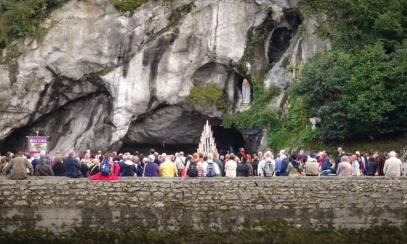My most powerful and beautiful experience of reconciliation
If you ask me to share with you the most powerful and most beautiful experiences I have had in the ministry of reconciliation, I have to say they were the mammoth celebrations we had in each of the then five regions of the diocese during Lent in 1979 and 1980.
Held in the biggest gymnasiums we could find, with the bishop presiding on Sunday afternoons and general absolution offered (with the stipulation that really grave sins should be included in the next private confession), thousands of penitents attended.
An exhortation to repentance and an assurance of God’s readiness to forgive all sincere comers was followed by an adult examination of conscience. This was a key factor, I was told later by many people who had been reciting the formulas and the lists of sins the sisters taught them in grade school. In all five regions, adults who had been away from the sacraments since the end of the Vatican Council thanked me in tears in the halls and in the parking lots.
I still keep a letter sent to me by an 86-year-old lady, a pious Catholic who said she spoke for many relatives and friends her own age. The adult liturgy of the afternoon, which took an hour, had taught them much, she insisted. “What a joy, what peace of mind for us older people, some of us scrupulous, doubtful, fearful, with failing memories, and in need of assurance as we get ready to leave this world.”
Pastors in all five regions reported after the regional penance services that there was a notable increase in the number of persons coming to the rectory seeking to have marriages regularized, or inquiring about annulment procedures, or seeking advice on making restitution for actions in the past. The people who flocked to these penance services were not renegades or strangers, mafia types or bigamists, looking for cheap grace. They were regular members of parishes and regular church-goers who had grown lax in the confusing years following Vatican Council II.
Six months after the last of these events, a letter from the papal nuncio in Washington ordered all bishops to stop conducting such services or allowing them in their dioceses. It was a case of Pope Paul VI giving something special to the Church and Pope John Paul II sharply curtailing it.
But the times, they were a-changin’ since the end of the immigrant era of American Catholicism, the entrance of Catholics into the mainstream of the secular culture, and the confusion in the area of morality. The Sacrament of Penance and Reconciliation has fallen upon hard times, and new initiatives are needed in the Church to restore reconciliation as a part of Catholic spiritual life again.



